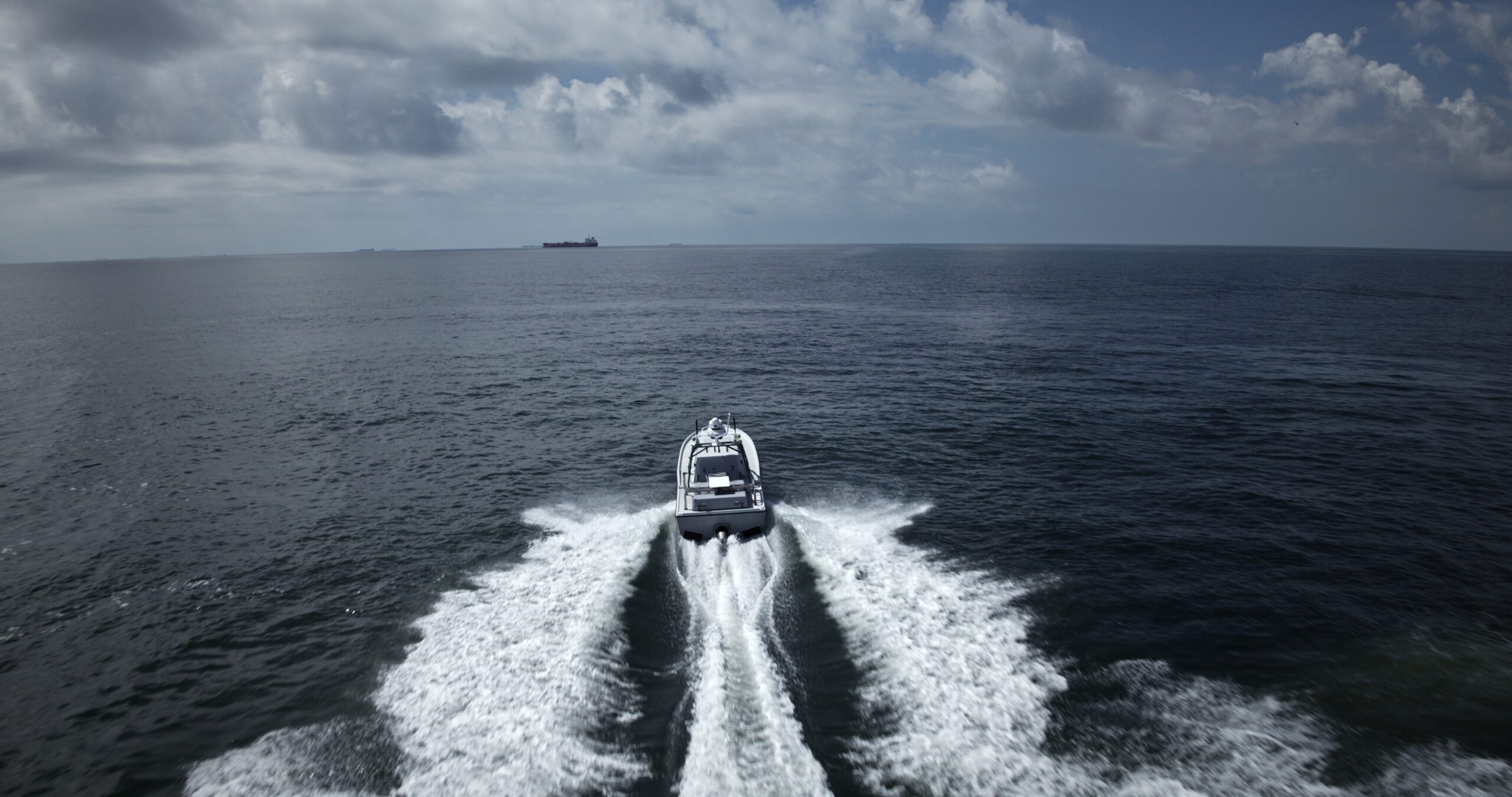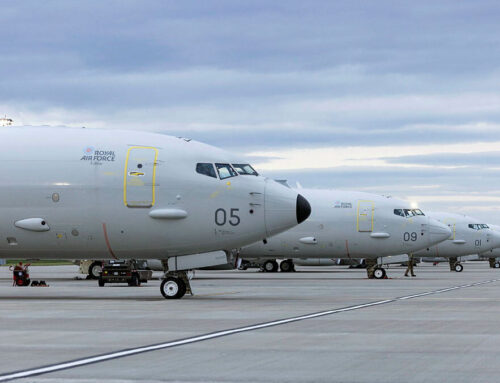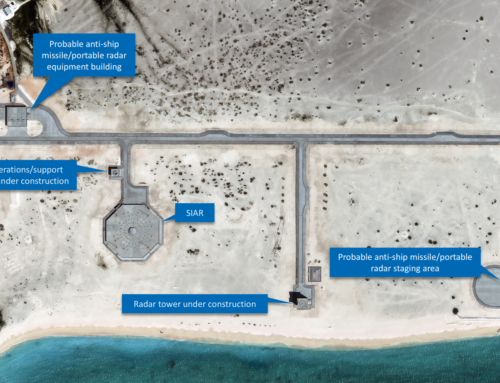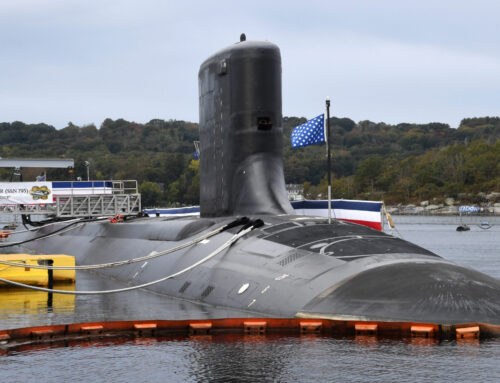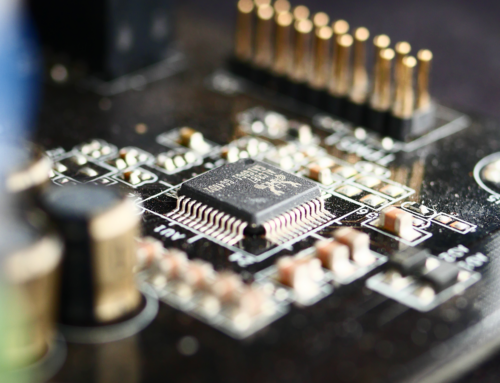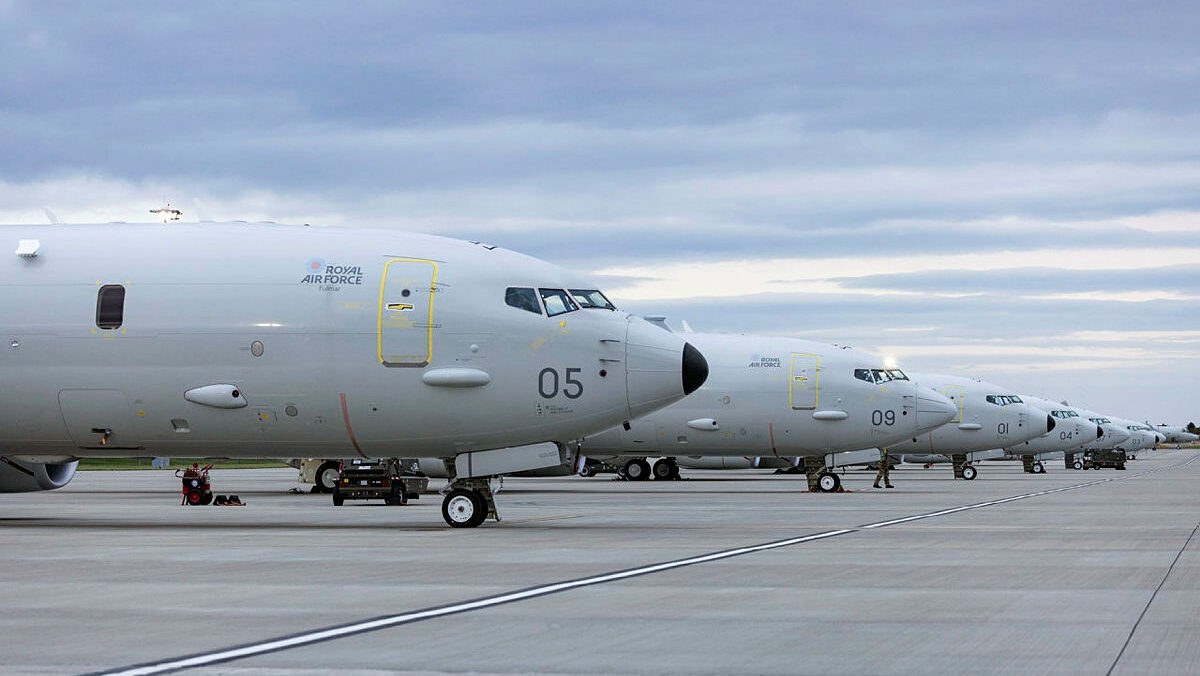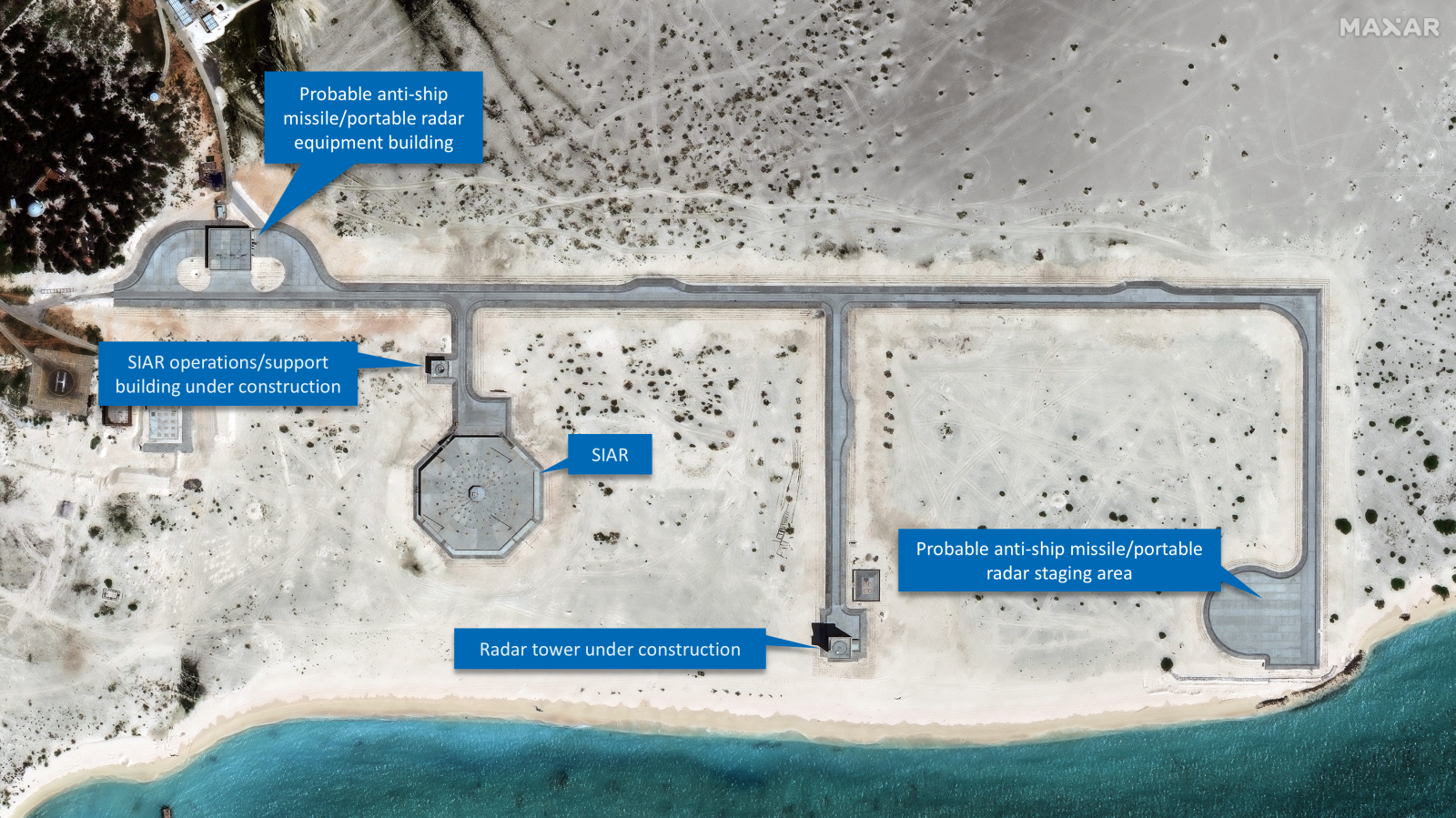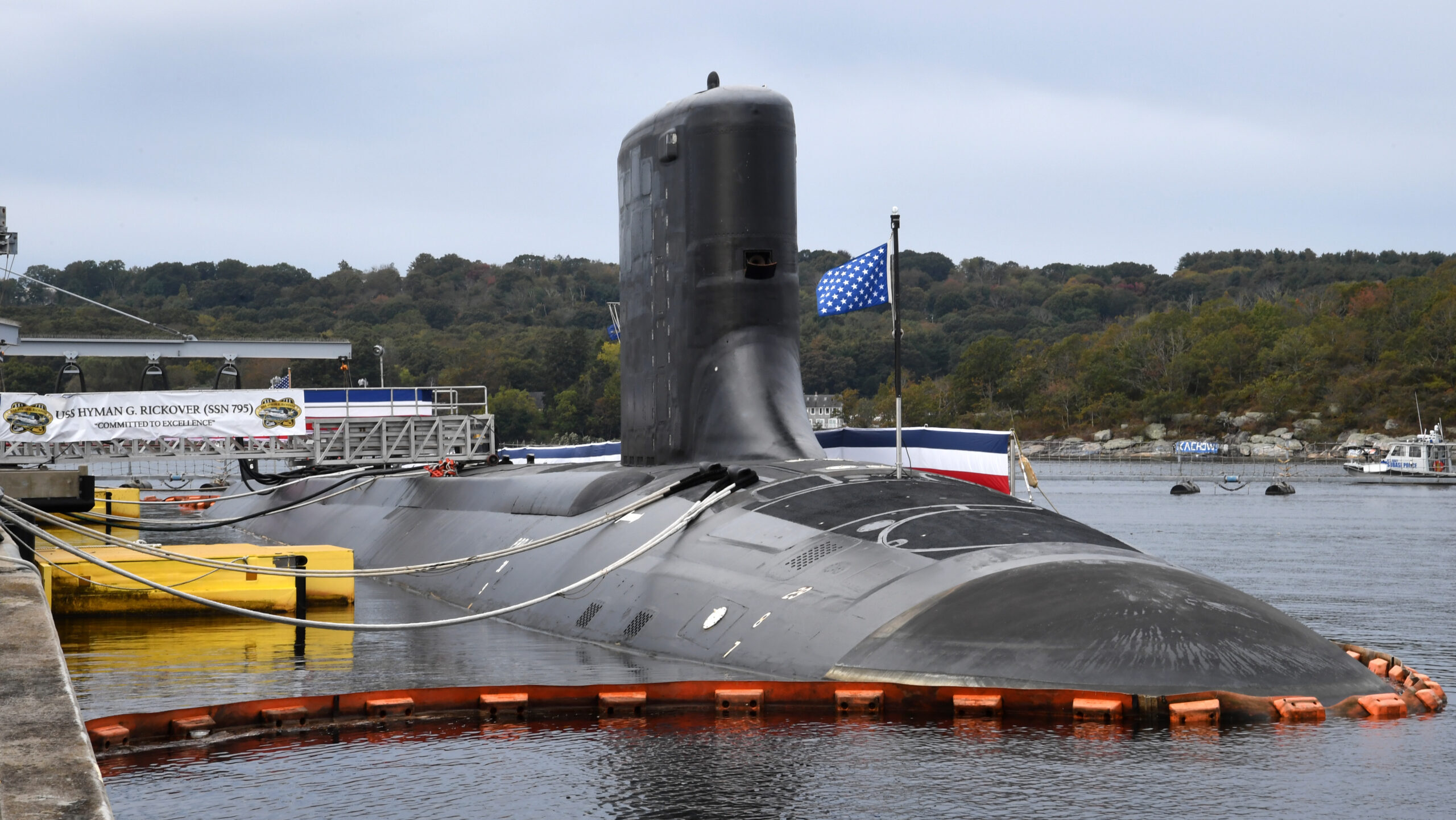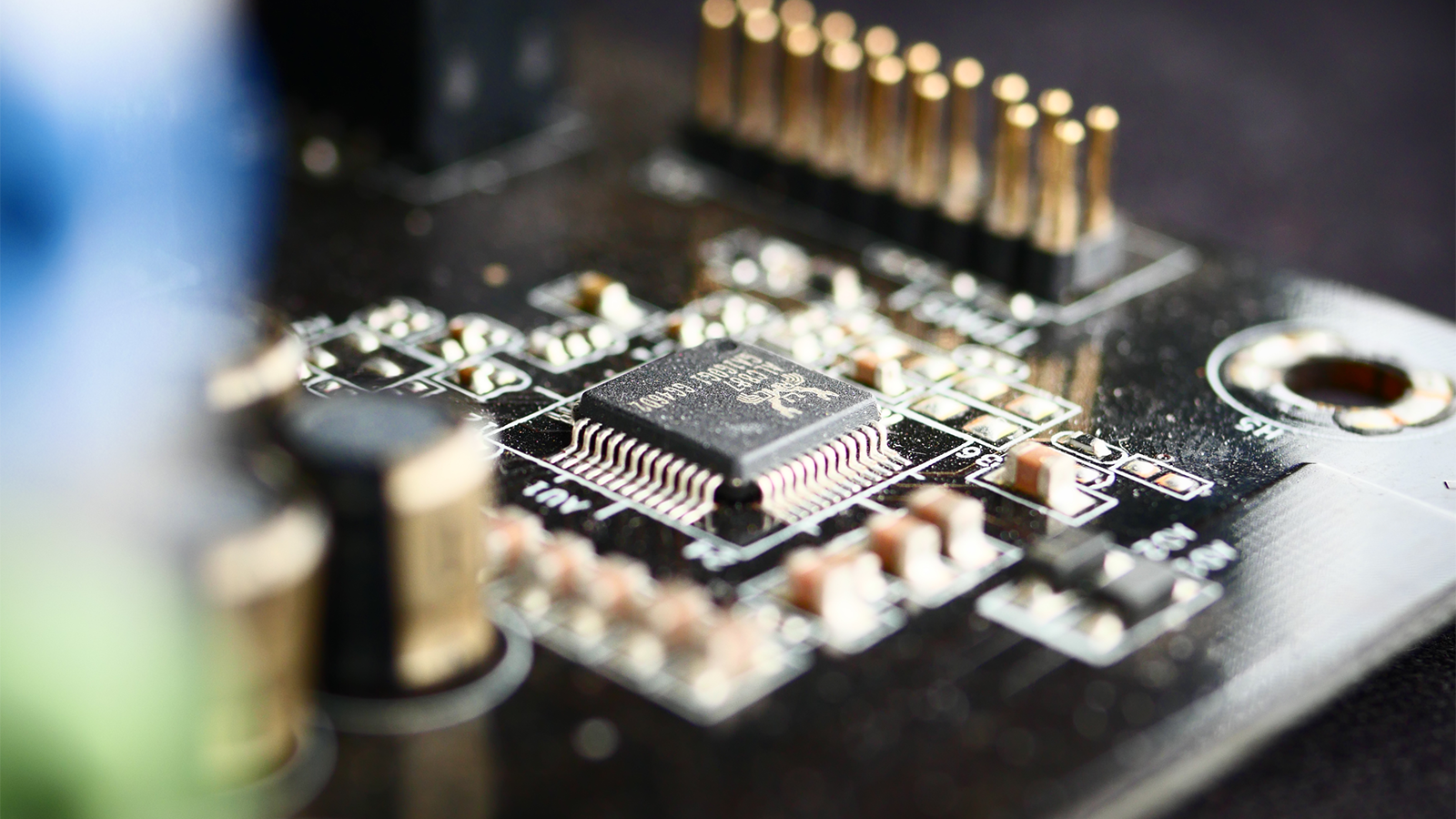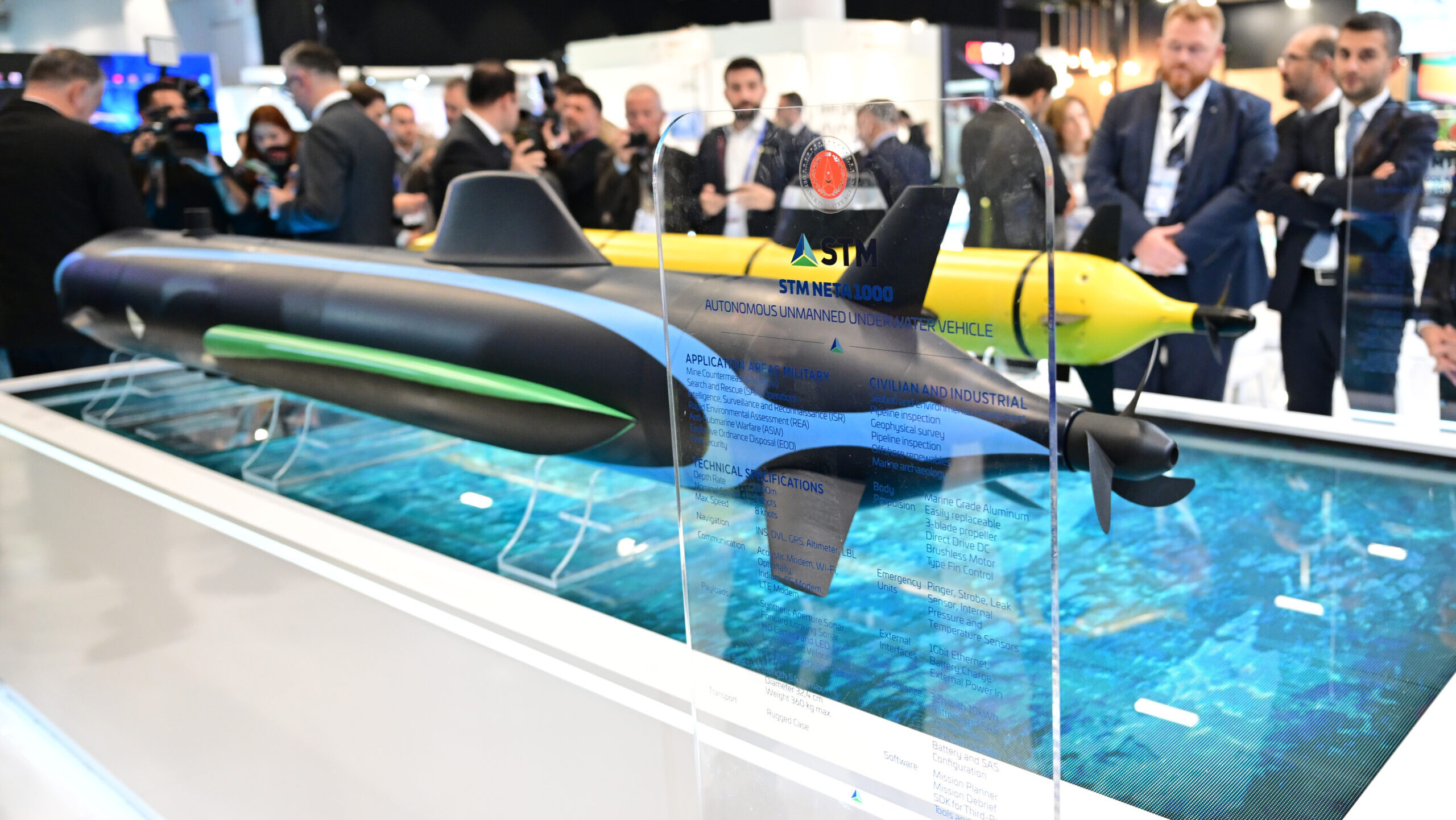Saronic’s Corsair autonomously navigating open waters in the Gulf of Mexico. (Photo provided by Saronic.)
WASHINGTON — Defense tech startup Saronic announced today it is launching its newest autonomous surface vessel, dubbed Corsair, the company’s third and largest unmanned maritime asset aimed at satisfying the Pentagon’s desire for expendable drones produced en masse.
The new unmanned vessel is 24 feet long and, according to the company, can travel 1,000 nautical miles at a top speed of 35 knots with a payload capacity of 1,000 pounds. Saronic also produces 6-foot and 14-foot model vessels that, as company officials describe them, fit the US Navy’s future vision for a hybrid manned/unmanned fleet.
Dino Mavrookas, co-founder and chief executive officer at Saronic, told reporters ahead of the public announcement the company is already planning to manufacture “hundreds” of the new vessel to “meet the demand” the company is predicting, without naming any specific deals.
“We’re building five prototypes, all of which are currently in development,” he said. “We have done live demonstrations already with end users, and we are moving and ramping into high-rate production and manufacturing as we speak. So, we will be building hundreds and hundreds of Corsairs next year with the ability to scale that into the thousands.”
RELATED: With Navy exercise, unmanned surface vessel firm Saronic sees ‘next step’
The startup, which was formed in 2022, has largely focused its efforts on developing and manufacturing unmanned surface vessels implicitly aimed at the Pentagon’s Replicator initiative, which seeks to mass produce affordable, unmanned drones that could be deployed in a fight against China.
As Mavrookas described it, Saronic’s advantage in the unmanned vessel market, which has become increasingly saturated in the defense industrial base in recent years, is vertical integration.
“The thing that matters to the Navy … is scale. The first thing that matters is, can you manufacture these at scale in very, very large quantities?” he said. “In order to scale autonomous platforms, you have to be vertically integrated from start to finish. You have to bring the hardware, the software and the manufacturing and production all together under one roof.”
Earlier this year, the Austin, Texas-based firm secured $175 million in series B funding in a round led by venture capital firm Andreessen Horowitz. Other firms included 8VC, Caffeinated Capital, Elad Gil and NightDragon.
When pressed by reporters on if the company’s production was getting too far ahead of the Pentagon’s interest, Mavrookas argued investors would not be cutting checks if the demand signals weren’t clear.
“The Navy has to go in this direction. The buying behavior is changing as we speak, and we’re scaling manufacturing and production with [independent research and development] to meet that demand. So, when the contracting catches up, we’re there to meet it,” he said.


